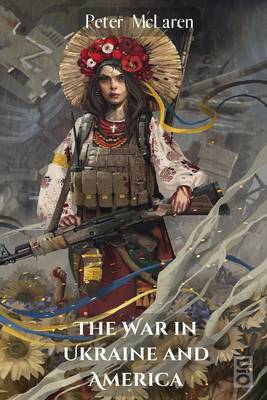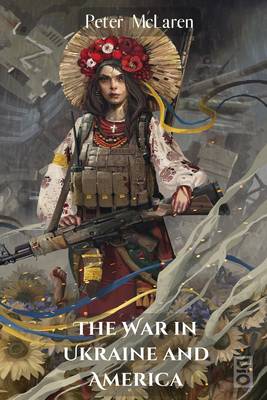
- Retrait gratuit dans votre magasin Club
- 7.000.000 titres dans notre catalogue
- Payer en toute sécurité
- Toujours un magasin près de chez vous
- Retrait gratuit dans votre magasin Club
- 7.000.000 titres dans notre catalogue
- Payer en toute sécurité
- Toujours un magasin près de chez vous
Description
From the moment the first shots were fired by Russian soldiers in their invasion of Ukraine, Peter McLaren began writing about what has turned out to be the deadliest conflict in Europe since World War II. Putin's invasion caused McLaren to think about his father, a World War II veteran who served in the Royal Canadian Engineers, and his uncle, a World War II hero who served in the Royal Navy and played a leading role in sinking the battleship Bismarck. Fearing the conflict would escalate beyond Ukraine, McLaren furiously put pen to page and published 25 articles in the New Zealand journal, Pesa Agora, and wrestled with some of the moral dilemmas surrounding the conflict, including the possibility of a World War III nuclear catastrophe. McLaren made the decision to support Ukraine during the first few weeks of the conflict. In writing about the war in his signature literary style, which inspired the late Joe Kincheloe to name McLaren "the poet laureate of the educational left",
McLaren was also closely following political events in the United States. Years before, McLaren had predicted that his adopted country would soon be treading towards fascism, as he watched with increasing alarm Trump operatives such as Steve Bannon put into effect propaganda efforts redolent of those crafted by the Third Reich leading up to World War II. McLaren's voice has often been described as prophetic, in consonance with the prophetic tradition of theology, and his approach in this work can be likened to the 'problem-posing' approach of the Brazilian educator, Paulo Freire, in that his writings are meant to raise provocative questions for discussion, with solutions to follow after intense and extended dialogue. It is in this sense that the book attempts to make the political more pedagogical and the pedagogical more political--and theological. Most disturbing for McLaren in writing about the war in Ukraine were the number of supporters for Putin's bloody war, typically among Trump supporters but also including some factions of the ultra-left. McLaren's own approach is dialectical, passionately supporting Ukraine while at the same time scathingly critical of Putin and United States foreign policy.
Spécifications
Parties prenantes
- Auteur(s) :
- Editeur:
Contenu
- Nombre de pages :
- 580
- Langue:
- Anglais
Caractéristiques
- EAN:
- 9781645042723
- Date de parution :
- 14-07-22
- Format:
- Livre broché
- Format numérique:
- Trade paperback (VS)
- Dimensions :
- 156 mm x 234 mm
- Poids :
- 802 g







